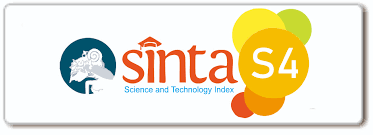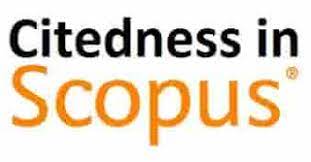The Love Curriculum Approach in Overcoming Learning Loss in Primary and Secondary Schools: A Review of the Literature and Implications of Islamic Education
DOI:
https://doi.org/10.59373/attadzkir.v4i1.94Keywords:
Love curriculum, Learning loss, Basic education, Affective approach, Literature reviewAbstract
Learning loss as a result of the COVID-19 pandemic has become a serious challenge in the world of education, especially at the elementary and secondary school levels. This article aims to examine the potential of the Love Curriculum approach as an innovative solution in overcoming learning loss. Using the literature review method, this article analyzes various relevant literature related to compassion-based curriculum, affective pedagogy, and humanistic approaches in education. The results of the study show that the Love Curriculum approach that emphasizes the value of empathy, attention, and positive teacher-student relationships can improve the learning climate, increase motivation, and recover students' academic and social-emotional lags. The practical implications of this study point to the importance of teacher training, strengthening value-based curriculum, and collaboration between schools and parents to create a loving learning environment. This article recommends the implementation of the Love Curriculum as a complementary strategy in national learning recovery policies. These findings are expected to be a conceptual contribution to the development of a more humane and transformative educational model in the post-pandemic era.
Downloads
References
Abdullah, N. M. S. A. N., Rahim, F. N. B. A., & Omar, R. A. B. M. I. @. (2021). Exploring the Challenges of Sustaining Qur’anic Memorization: A Case Study. Journal of Islamic Educational Research, 6, 1–17.
Adiyono, A., Fadhilatunnisa, A., Rahmat, N. A., & Munawarroh, N. (2022). Skills of Islamic Religious Education Teachers in Class Management. Al-Hayat: Journal of Islamic Education, 6(1), 104–115. https://doi.org/10.35723/ajie.v6i1.229
Agus, A., Juliadharma, M., & Djamaluddin, M. (2023). Application of the CIPP Model in Evaluation of The Inclusive Education Curriculum in Madrasah Aliyah. Nidhomul Haq : Jurnal Manajemen Pendidikan Islam, 8(1), 31–50. https://doi.org/10.31538/ndh.v8i1.2705
Aisah, Asy’ari, H., & Rofiq, M. H. (2025). The Role of Islamic Religious Education Teachers in Fostering the Habit of Congregational Prayer for Students. JELIN: Journal of Education and Learning Innovation, 2(1), 16–26. https://doi.org/10.59373/jelin.v2i1.94
Akbari, O., & Sahibzada, J. (2020). Students’ Self-Confidence and Its Impacts on Their Learning Process. American International Journal of Social Science Research, 5(1), 1–15. https://doi.org/10.46281/aijssr.v5i1.462
Al-Rabaani, A. H. (2018). Views of Omani post-basic education students about religious and cultural tolerance. Cambridge Journal of Education, 48(1), 87–101. https://doi.org/10.1080/0305764X.2016.1252314
Al-Shanawani, H. M. (2019). Evaluation of Self-Learning Curriculum for Kindergarten Using Stufflebeam’s CIPP Model. SAGE Open, 9(1), 2158244018822380. https://doi.org/10.1177/2158244018822380
Alwi, M., & Mumtahana, L. (2023). The Principal’s Strategy in Improving the Quality of Teacher Performance in the Learning Process in Islamic Elementary Schools. Kharisma: Jurnal Administrasi Dan Manajemen Pendidikan, 2(1), 66–78. https://doi.org/10.59373/kharisma.v2i1.18
Alya, A., Rasyid, M., Suhesty, A., & Handayani, N. (2024). Work Readiness Reviewed From Proactive Personality And Psychological Capital. Munaddhomah: Jurnal Manajemen Pendidikan Islam, 5(3), 293–302. https://doi.org/10.31538/munaddhomah.v5i3.1337
Amaliati, S. (2020). Pendidikan Karakter Perspektif Abdullah Nashih Ulwan dalam Kitab Tarbiyatul Aulad Fil Islam dan Relevansinya Menjawab Problematika Anak di Era Milenial. Child Education Journal, 2(1), 34–47. https://doi.org/10.33086/cej.v2i1.1520
Ardianto, Usman, M. U. K., Gunawan, & Sholihah, M. (2023). Curriculum Management in The Character Forming of Students. Andragogi: Jurnal Pendidikan Dan Pembelajaran, 3(2), 62–73. https://doi.org/10.31538/adrg.v3i2.1282
Astra, N. P. B., Hafid, E., & Suban, A. (2024). Scout Extracurricular Curriculum Management in Improving Student Discipline in Madrasah. Munaddhomah: Jurnal Manajemen Pendidikan Islam, 5(2), 161–172. https://doi.org/10.31538/munaddhomah.v5i2.810
Aziz, M., Napitupulu, D. S., & Parapat, F. A. (2025). The Influence of Teacher Communication Patterns in Aqidah Akhlak Education on Students’ Academic Achievement. Attadrib: Jurnal Pendidikan Guru Madrasah Ibtidaiyah, 8(1), 71–86. https://doi.org/10.54069/attadrib.v8i1.840
Bakker, A. B., Hetland, J., Kjellevold Olsen, O., & Espevik, R. (2023). Daily transformational leadership: A source of inspiration for follower performance? European Management Journal, 41(5), 700–708. https://doi.org/10.1016/j.emj.2022.04.004
Basri, B., Nasir, M., Fiqiyah, M., Rizal, S., & Zainuddin, Z. (2024). Dating Practices: A Moral Negotiation in Pesantren. Jurnal Ilmiah Peuradeun, 12(2), 671–694. https://doi.org/10.26811/peuradeun.v12i2.1167
Basri, H., & Abdullah, A. (2024). Curriculum Integration Constructs in Integrated Islamic Elementary School. Tafkir: Interdisciplinary Journal of Islamic Education, 5(1), 79–99. https://doi.org/10.31538/tijie.v5i1.873
Chen, W., Wang, M., Gao, Y., Fang, M., Liu, Y., Tao, Y., … Wang, W. (2024). The effects of Chinese calligraphic handwriting education on positive mental characters and academic emotions in Chinese primary school students. Acta Psychologica, 250, 104533. https://doi.org/10.1016/j.actpsy.2024.104533
Cook, W. (2021). Does funding targeted at improving the management of schools increase school performance over the long term? Economics Letters, 204, 109871. https://doi.org/10.1016/j.econlet.2021.109871
Erawadi, E., & Setiadi, F. M. (2024). Exploring Religious Harmony Through Dalihan Na Tolu: Local Wisdom in Peacebuilding in Indonesia. Jurnal Ilmiah Peuradeun, 12(3), 1379–1408. https://doi.org/10.26811/peuradeun.v12i3.1398
Fernando, A., & Zumratun, E. (2025). Evaluasi Pelaksanaan Projek Penguatan Profil Pelajar Pancasila di Sekolah Dasar: Evaluation of the Implementation of the Project on Strengthening the Profile of Pancasila Students in Elementary Schools. Attadrib: Jurnal Pendidikan Guru Madrasah Ibtidaiyah, 8(1), 137–150. https://doi.org/10.54069/attadrib.v8i1.875
Fidayani, E. F., & Ammar, F. M. (2023). The Use of Azhari Curriculum in Arabic Language Learning at Islamic Boarding School. Nazhruna: Jurnal Pendidikan Islam, 6(1), 25–45. https://doi.org/10.31538/nzh.v6i1.2866
Gangal, M., & Yilmaz, A. (2023). The effects of pedagogical documentation on preschool teachers’ classroom management skills. Teaching and Teacher Education, 133, 104289. https://doi.org/10.1016/j.tate.2023.104289
Gea, S. H., Setiawati, D. T., Sukriyah, E., Siahaan, A., & Amiruddin. (2022). PAI Teachers’ Self Reflections on Differentiation Learning in the Independent Learning Curriculum. Munaddhomah: Jurnal Manajemen Pendidikan Islam, 3(2), 212–220. https://doi.org/10.31538/munaddhomah.v3i2.263
Gu, M., Zhang, Y., Li, D., & Huo, B. (2023). The effect of high-involvement human resource management practices on supply chain resilience and operational performance. Journal of Management Science and Engineering. https://doi.org/10.1016/j.jmse.2022.12.001
Hasanah, M., Arafat, Y., Barni, M., Raya, A. T., & Aprilianto, A. (2024). Teachers’ Strategies for Managing Disruptive Behavior in The Classroom During The Learning Process. Nazhruna: Jurnal Pendidikan Islam, 7(3), 628–645. https://doi.org/10.31538/nzh.v7i3.7
Hasanah, S. M., Maimun, A., Marno, M., & Barizi, A. (2024). Forging Qur’anic Character: A School Principal Leadership Model-Insights. Nidhomul Haq : Jurnal Manajemen Pendidikan Islam, 9(1), 28–42. https://doi.org/10.31538/ndh.v9i1.4380
Isnaeni, F., Budiman, S. A., Nurjaya, N., & Mukhlisin, M. (2025). Analysis of the Readiness for Implementing Deep Learning Curriculum in Madrasah from the Perspective of Educators. Attadrib: Jurnal Pendidikan Guru Madrasah Ibtidaiyah, 8(1), 15–30. https://doi.org/10.54069/attadrib.v8i1.841
Kadir, A., Assingkily, M. S., Jahidin, Sufiani, Samputri, S., & Ahmad, M. (2024). Development of Integrated Science Teaching Materials of Al-Quran Verses in Improving Students’ Religious Attitudes in Madrasas. Nazhruna: Jurnal Pendidikan Islam, 7(3), 512–530. https://doi.org/10.31538/nzh.v7i3.2
Khasanah, Violy, A., Yustantina, E. Y., & Yasin, M. F. (2024). Development of STEAM-Based Video Learning Media for Early Childhood Education with the Inclusion of Religious and Moral Values. Tafkir: Interdisciplinary Journal of Islamic Education, 5(1), 136–152. https://doi.org/10.31538/tijie.v5i1.717
Manan, A., Rasyad, R., Saputra, I. R., Sa’i, S., Daud, A., Tuffahati, Z., & Champion, I. (2024). Morality and Immorality in Politics in Aceh Post 2005 MoU Helsinki (A Case Study on the Relevance of Actions Compared with Peace Promises). Jurnal Ilmiah Peuradeun, 12(3), 1311–1334. https://doi.org/10.26811/peuradeun.v12i3.1295
Nieuważny, J., Nowakowski, K., Ptaszyński, M., Masui, F., Rzepka, R., & Araki, K. (2021). Does change in ethical education influence core moral values? Towards history- and culture-aware morality model with application in automatic moral reasoning. Cognitive Systems Research, 66, 89–99. https://doi.org/10.1016/j.cogsys.2020.10.011
Rachman, A., Sunarno, S., Saputra, N., Judijanto, L., Nurhidin, E., & Zamroni, M. A. (2024). Enhancing Teacher Performance Through Millennial Teacher Characteristics, Work Culture, and Person-Job Fit Mediated by Employee Engagement. Nazhruna: Jurnal Pendidikan Islam, 7(2), 270–289. https://doi.org/10.31538/nzh.v7i2.4636
Ramdhani, K., Waluyo, K. E., & Nurlaeli, A. (2023). Patterns Of Character Education In Islamic Boarding Schools In Anticipating Radicalism In The Industrial Revolution Era 4.0. At-Tarbiyat :Jurnal Pendidikan Islam, 6(1). https://doi.org/10.37758/jat.v6i1.598
Salamah, N., Mujiono, & Muslihun. (2025). Curriculum Management to Shape Students’ Competence in Knowledge, Religious Values, and Morals. JELIN: Journal of Education and Learning Innovation, 2(1), 1–15. https://doi.org/10.59373/jelin.v2i1.90
Suhermanto, Mansyuri, A., Ma`arif, M. A., & Sebgag, S. (2024). Implementation of Character Education in PAI Subjects in the Independent Curriculum. Fikroh: Jurnal Pemikiran Dan Pendidikan Islam, 17(1), 1–10. https://doi.org/10.37812/fikroh.v17i1.1394
Sunardi, S., Fathoni, M. T., & Munfarida, I. (2024). Pembiasaan Istighosah Dalam Pembentukan Kecerdasan Spiritual Santri. Ngaos: Jurnal Pendidikan Dan Pembelajaran, 2(1), 21–32. https://doi.org/10.59373/ngaos.v2i1.9
Umar, M., Ismail, F., Rahmi, S., & Arifin, Z. (2024). Transforming of Moderate Character Education in Islamic Educational Institutions. Nazhruna: Jurnal Pendidikan Islam, 7(1), 171–188. https://doi.org/10.31538/nzh.v7i1.4168
Downloads
Published
How to Cite
Issue
Section
License
Copyright (c) 2024 Windy Dian Sari

This work is licensed under a Creative Commons Attribution-ShareAlike 4.0 International License.

At-Tadzkir: Islamic Education Journal by Perkumpulan Dosen Tarbiyah Islam Indonesia is licensed under a Creative Commons Attribution-ShareAlike 4.0 International License.
Based on a work at http://at-tadzkir.pdtii.org/index.php/tadzkir/index.








